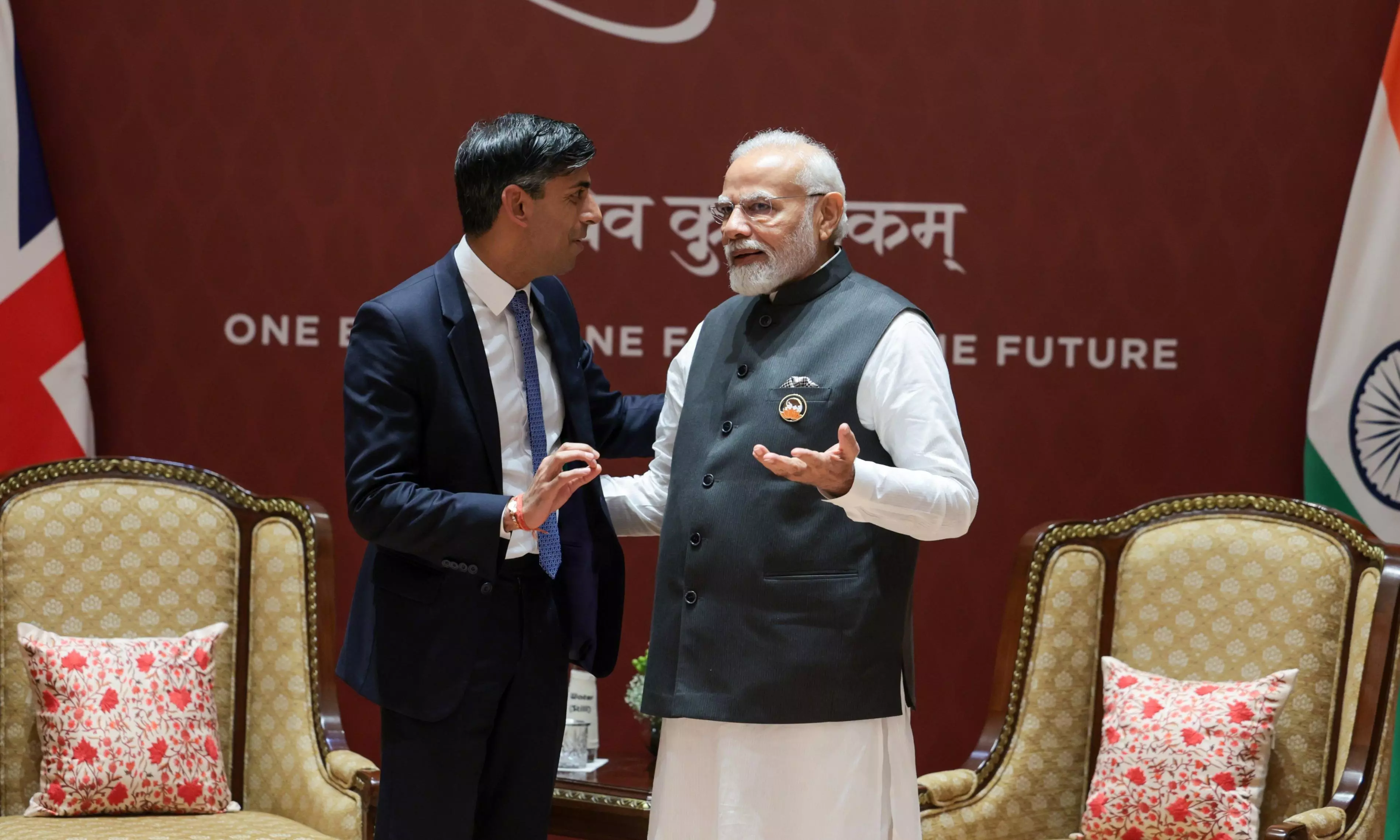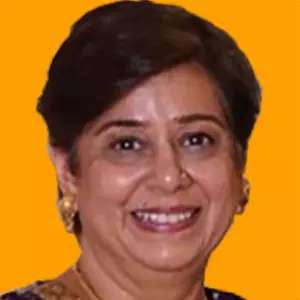
- Home
- India
- World
- Premium
- THE FEDERAL SPECIAL
- Analysis
- States
- Perspective
- Videos
- Sports
- Education
- Entertainment
- Elections
- Features
- Health
- Business
- Series
- In memoriam: Sheikh Mujibur Rahman
- Bishnoi's Men
- NEET TANGLE
- Economy Series
- Earth Day
- Kashmir’s Frozen Turbulence
- India@75
- The legend of Ramjanmabhoomi
- Liberalisation@30
- How to tame a dragon
- Celebrating biodiversity
- Farm Matters
- 50 days of solitude
- Bringing Migrants Home
- Budget 2020
- Jharkhand Votes
- The Federal Investigates
- The Federal Impact
- Vanishing Sand
- Gandhi @ 150
- Andhra Today
- Field report
- Operation Gulmarg
- Pandemic @1 Mn in India
- The Federal Year-End
- The Zero Year
- Science
- Brand studio
- Newsletter
- Elections 2024
- Events
- Home
- IndiaIndia
- World
- Analysis
- StatesStates
- PerspectivePerspective
- VideosVideos
- Sports
- Education
- Entertainment
- ElectionsElections
- Features
- Health
- BusinessBusiness
- Premium
- Loading...
Premium - Events

Instead of getting a rapturous reception, the British PM was shunted down the pecking order, with the prized position going to Joe Biden
The G20 summit has come and gone in the blink of an eye and British PrimeMinister Rishi Sunak has returned home a little disappointed.
The Indian-origin Sunak, with his Indian-national wife in tow, had described his first trip to India as the Prime Minister of Great Britain as a “special moment” before he left the British Isles. As the “son-in-law” of India and “the living bridge” that Prime Minister Narendra Modi had called him when he assumed office in October last year, Sunak had expected preferential treatment among the world leaders who had gathered in New Delhi.
After all, he was the conquering hero returning home! The personification of the empire striking back! Sunak had expected a rapturous reception, but instead, he was made to wait for a day to meet Modi and, that too, without the impressive photo-op that was promised. Sunak found himself shunted down the pecking order, with the prized position going to US President Joe Biden.
Britain’s first Prime Minister of colour, and of Indian descent to boot, was scheduled to meet Modi on Friday at the latter's grand residence for that bear hug with the world’s media there to click the moment for posterity, but he finally got to meet him on Saturday in a soulless conference room at the G20 complex. Sunak put on a brave face and emerged from the meeting in his usual buoyant mood.
“Prime Minister Modi and I had a very warm and productive discussion on a range of things,” he told the waiting UK press pack that had travelled to New Delhi with him.
Series of disappointments
Modi was not the only person to cancel on Sunak on Friday night — a delegation of business executives was forced to abandon a planned event with him after struggling to get past the roadblocks erected across the capital for the summit.
Sunak and his heiress wife Akshata Murthy, daughter of Infosys founder Narayan Murthy, had hoped to eat at one of their favourite restaurants — Haldiram’s or Saravana Bhavan — but were disappointed, thanks to the citywide shutdown, and instead ended up eating alone at The Imperial hotel where they were staying.
Though Sunak, before he left British shores, had shied away from giving a firm deadline for the elusive UK-India Free Trade Agreement that has been beset by delays, the only nugget of progress he could offer the press after his meeting with Modi was: “I’m confident there is a deal there to be done.” The fact that India and the UK have been negotiating for more than 18 months and still have some major hurdles to jump before a trade deal can be signed has not escaped anyone’s notice.
When Sunak’s predecessor in Downing Street, Boris Johnson, visited India in April last year, he had returned home with the prospect of an imminent deal. But by June, Johnson was forced to resign as prime minister, and then followed four months of turmoil in the Conservative Party when the trade deal was put on the back burner. Liz Truss’s premiership was so short-lived that she had no time to do anything.
Once Sunak entered Downing Street in October, there were great expectations that the trade deal would finally be signed. It had been hoped that an agreement would be ready to be announced by the time Sunak jetted off to India for the G20, but instead, the Prime Minister had said he would not “sacrifice quality for speed” and did not commit to signing the pact before the general election next summer.
The contentious visa issue
India and the UK are the fifth and sixth largest economies in the world, respectively, and India is already one of the UK’s largest trading partners with a relationship worth £36 billion a year. While certain agreements have been achieved in key areas such as the reduction of tariffs on whisky and cars for India and the removal of tariffs on textiles and other goods for the UK, substantial disagreements still persist.
The main area of contention is India’s demand for increased visas for Indian students and employees of Indian firms, as well as more work visas for Indian care workers and nurses. However, Britain’s Home Minister Suella Braverman, also of Indian origin, is adamant about decreasing the number of immigrants coming to the UK. She would like to address the visa issue separately from the trade deal with India, but New Delhi is not having it.
At present, one in five of all work visas issued in the UK goes to an Indian and there are about 1,500 Indian workers arriving in Britain every week, as opposed to about 500 workers from all the European Union countries put together. Indians also top the list for student visas. India would like the numbers to go up even more.
The point of no return
Braverman has candidly called out Indian nationals as the largest group of “overstayers” of UK visas, and even among the illegal migrants crossing over the English Channel in small boats, Indians have become the second biggest contingent from earlier this year. Before going to the G20, Sunak had revealed that he was pushing India for a strengthened returns agreement of illegal arrivals, but nothing concrete has happened so far. The UK Home Office is surprised by the “weird and wonderful ways” Indian officials come up with to obstruct the return of illegal migrants who travel to the UK via the English Channel.
Sunak is under significant pressure from his MPs and the grassroots members of the Conservative party to stop the small boats crossing the Channel with illegal migrants and it is one of the five pledges he has made to the British public to achieve before the next general election.
Sunak returns to the UK with some painful setbacks taking place in his absence, including a personal slump in the opinion polls. His much-touted visit to India did not manage to make it to the front page of any of the UK newspapers. Progress in the Indo-UK trade deal would have been a great takeaway of the G20 and offset the negative news, but that was not to be. British officials claim they are confident that one could be signed later this year. If that happens, it could help remove criticisms that Brexit has been a failure and give Sunak a much-needed political victory. But it might also be too little too late.(Sajeda Momin has held senior positions in Indian newspapers and now divides her time between Kolkata and London)


